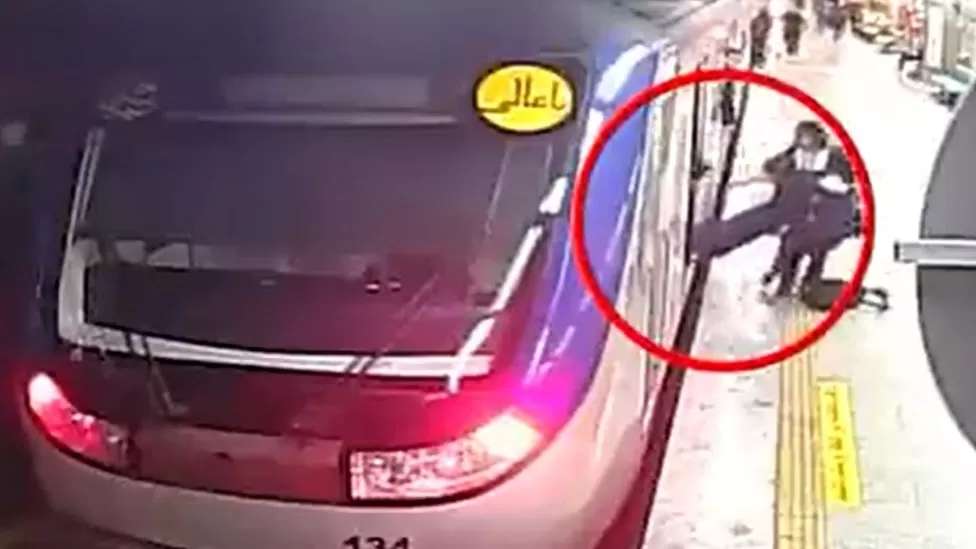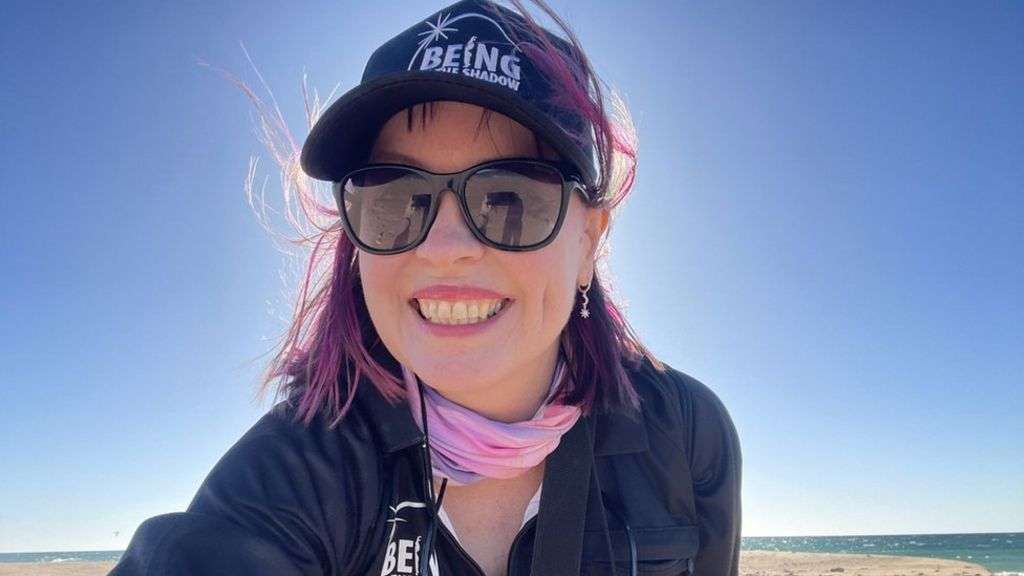Activists have accused Iran's morality police of beating a girl for not wearing a hijab and posted a photo purportedly showing her in a coma.
Armita Geravand, 16, collapsed after boarding a Tehran metro train at Shohada station on Sunday.
Officials said she fainted and released CCTV footage in which she is seen being pulled unconscious from the train.
Human rights group Hengaw alleged that she was subjected to "a severe physical assault" by morality police officers.
It said Armita was being treated at Tehran's Fajr hospital under tight security, and that the phones of all members of her family had been confiscated.
On Monday, authorities briefly detained a female journalist for the Sharq newspaper who went to the hospital to report on the case.

Hengaw, which focuses on Iran's Kurdish ethnic minority, said on Tuesday afternoon that Armita lived in Tehran but was originally from the predominantly Kurdish western province of Kermanshah.
"[She] was physically attacked by authorities at Shohada station... for what they perceived as non-compliance with the compulsory 'hijab'," it added. "As a result, she sustained severe injuries and was transported to the hospital."
Two prominent rights activists also told Reuters news agency that there was a confrontation with agents enforcing the strict dress code.
Amsterdam-based Radio Zamaneh meanwhile cited an unnamed source as saying that the teenager was "pushed by hijab enforcers" after she got onto the train without a headscarf and that "she hit her head on an iron pole".
On Tuesday night, Hengaw posted on X, formerly known as Twitter, what it said was a photo of Armita unconscious in hospital.
The picture, whose authenticity the OceanNewUK could not immediately verify, shows a girl with short hair lying on her back in a bed with a bandaged head and attached to what appears to be a breathing tube.
The rights group also said it had received information indicating that Armita's parents had been interviewed by the state news agency, Irna, "in the presence of high-ranking security officers under considerable pressure at Fajr Hospital".
Irna cited Armita's mother as saying that they had seen the CCTV footage and accepted that what happened on Sunday was an "accident".
"I think my daughter's blood pressure dropped, I am not too sure, I think they have said her pressure dropped," her mother states in a heavily edited video posted by Irna.
The managing director of the Tehran metro, Masood Dorosti, also denied that there was "any verbal or physical conflict" between Armita and "passengers or metro executives".
"Some rumours about a confrontation with metro agents... are not true and CCTV footage refutes this claim," he told Irna.
The footage is said to shows Armita, with her hair uncovered, walking on to a train at the platform with two other girls.
Moments later, one of the girls backs out of the train and bends down.
She and several other passengers are then seen carrying an unconscious Armita by her arms and legs before laying her down on the platform.

Some Iranian social media users noted that the video released by authorities only showed the platform and not the inside of the train. Footage of the entrance to the station, where hijabs may be checked, was also not released.
They also saw echoes of the case of Mahsa Amini, a 22-year-old Kurdish woman who died in custody in September 2022 after being detained by morality police in Tehran for allegedly wearing her hijab "improperly".
Witnesses said she was beaten by officers, but authorities attributed her death to pre-existing medical conditions.
CCTV video showing Amini collapsing at a detention centre and a photo of her in hospital enraged many Iranians, and anti-government protests erupted across the country when she died after three days in a coma.
Hundreds of people have been killed and thousands more detained in a violent crackdown by security forces.
A year after Mahsa Amini's death, the protests have largely subsided. But sporadic demonstrations still take place and many girls and women have stopped covering their hair in public in open defiance of the dress code.








